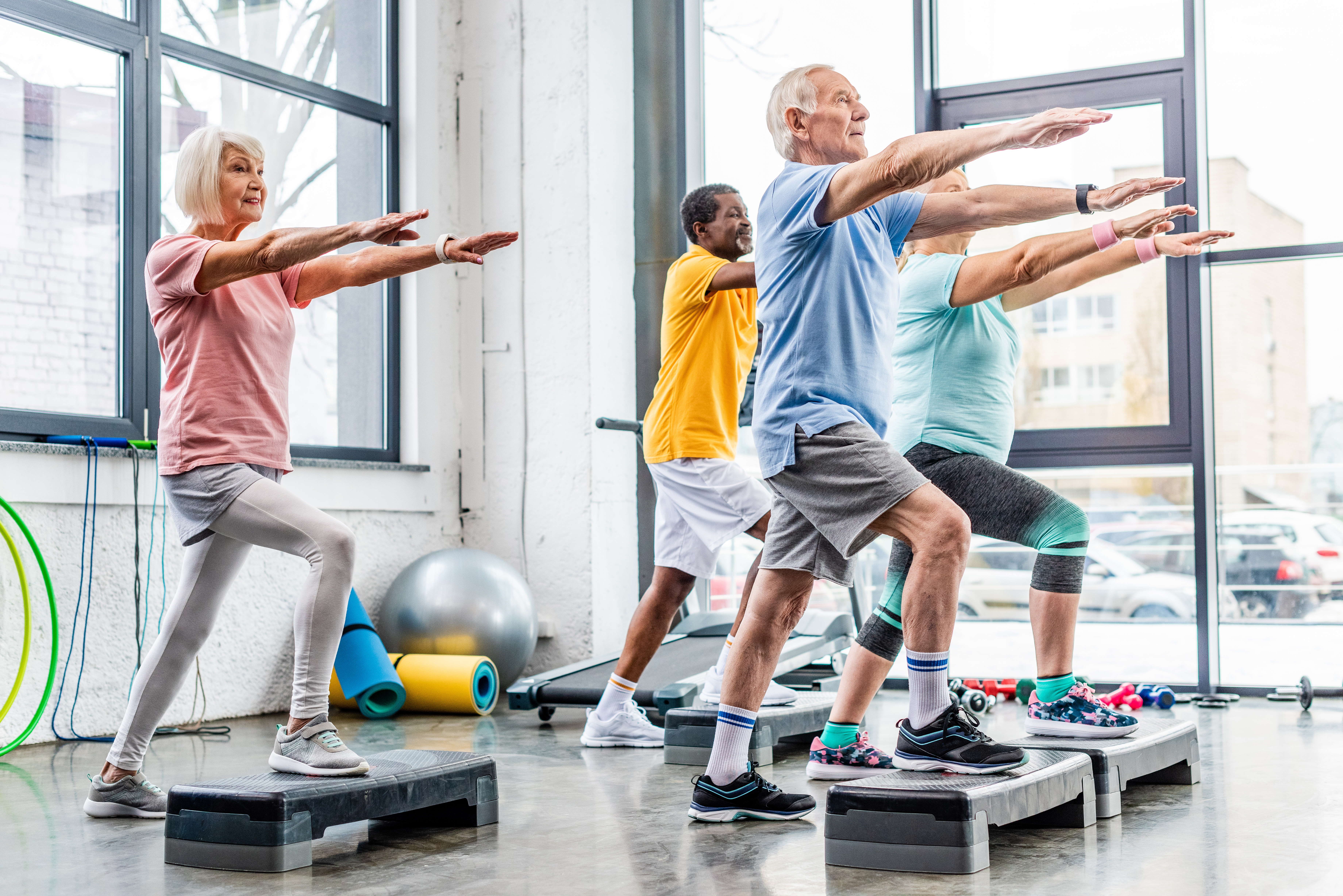According to the new exercise guidelines provided by the federal government, adults should still exercise at moderate intensity for at least 150 to 300 minutes weekly. Moderate-intensity activities include swimming, cycling and brisk walking. For the first time in a decade, the government has updated its guidelines, publishing them in the journal JAMA in November 2018.
A Harvard publication details age-specific recommendations contained in these updated guidelines with intriguing changes listed for older adults ages 65 and up. The report recommends that older adults include “multicomponent” exercises that include:
- balance training activities
- aerobic exercise activities
- muscle-strengthening activities
Specific activities suggested include the following:
- dancing
- tai chi
- yoga
- sports
- gardening
Previously, exercise sessions needed to last 10 minutes or more to be part of your week’s exercise quota. Now, the researchers emphasize consistency, with exercise of any duration contributing to your weekly activity.
You can find the entire set of physical activity guidelines here. A quick overview can be found here, and it gives you a quick way to compare how previous guidelines may have changed.
More About Physical Activity Guidelines
The federal government recommends that people move more and sit less, so a key first step can be simply reducing the amount of time you spend sitting each day. If you need to spend significant amounts of time sitting, perhaps because you have a desk job or have some physical limitations, you can look into performing desk exercises, which includes chair yoga.
What works for you may not be right for someone else because these new guidelines focus on relative intensity. In other words, what’s “moderate” for you should be based upon your unique capacity for exercise. If you’re just getting back to exercising, for example, the speed of a “brisk walk” for you will be different from someone who hasn’t taken a break from exercising.
And according to Harvard, “most people can safely improve their fitness and health. Begin with lower amounts of exercise and slowly increase duration, intensity, and frequency.” The article also gives specific examples, which is helpful.
If you’re returning to movement after being bed-bound, walking for two minutes — perhaps during commercial breaks on television or radio — every 10 to 15 minutes might be right for you. If you’re already walking outdoors for exercise, try adding an extra block once a week. If you’re actually jogging, do so at your standard pace for five minutes and then increase your pace for one minute.
Health Benefits of Exercise
Health.gov states physical activity has been shown to have immediate health benefits, including reduced anxiety, lower blood pressure, better sleep and more. And the updated physical exercise guidelines have been shown to have the capacity to lead to longer-term health benefits. Physical activity can also be part of preventive healthcare strategies, lowering risks for eight different types of cancer, reducing the risk of dementia, and lowering risks for heart disease and stroke, Type 2 diabetes and much more.
Exercise can help adults lower their risk of falling, depression, and more, and can also help manage health conditions that a person already has, ranging from anxiety to multiple sclerosis, and from ADHD to Parkinson’s disease, osteoarthritis and more.
WebMD.com adds an important statement to their commentary, and that’s how these guidelines are focused on health, not on losing weight. If you need to lose weight, the program may require more intensive exercise, so consult your doctor for specifics.











